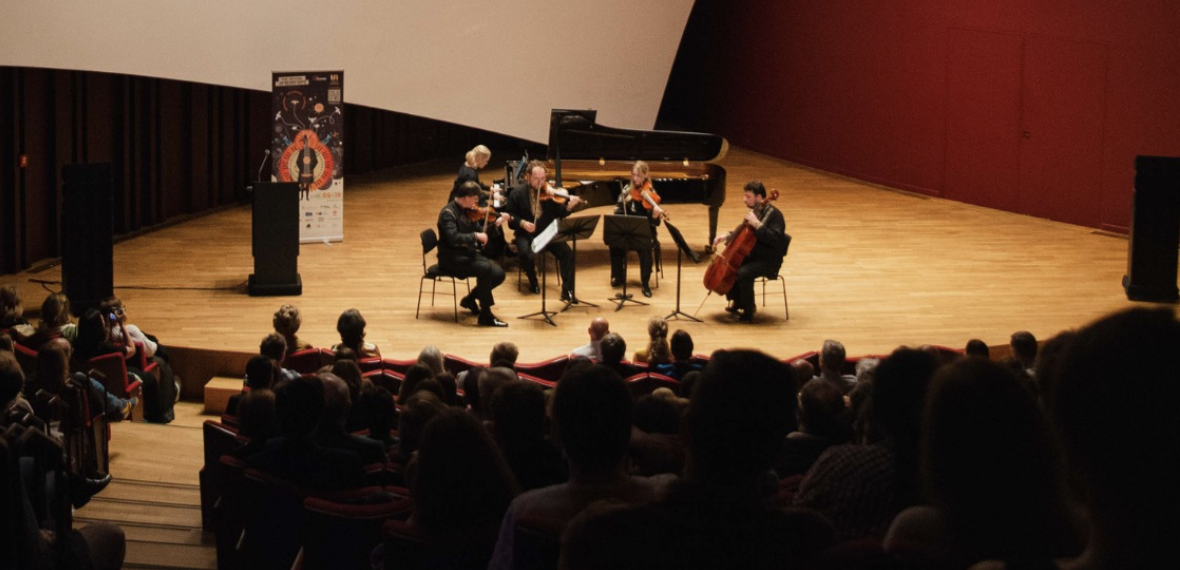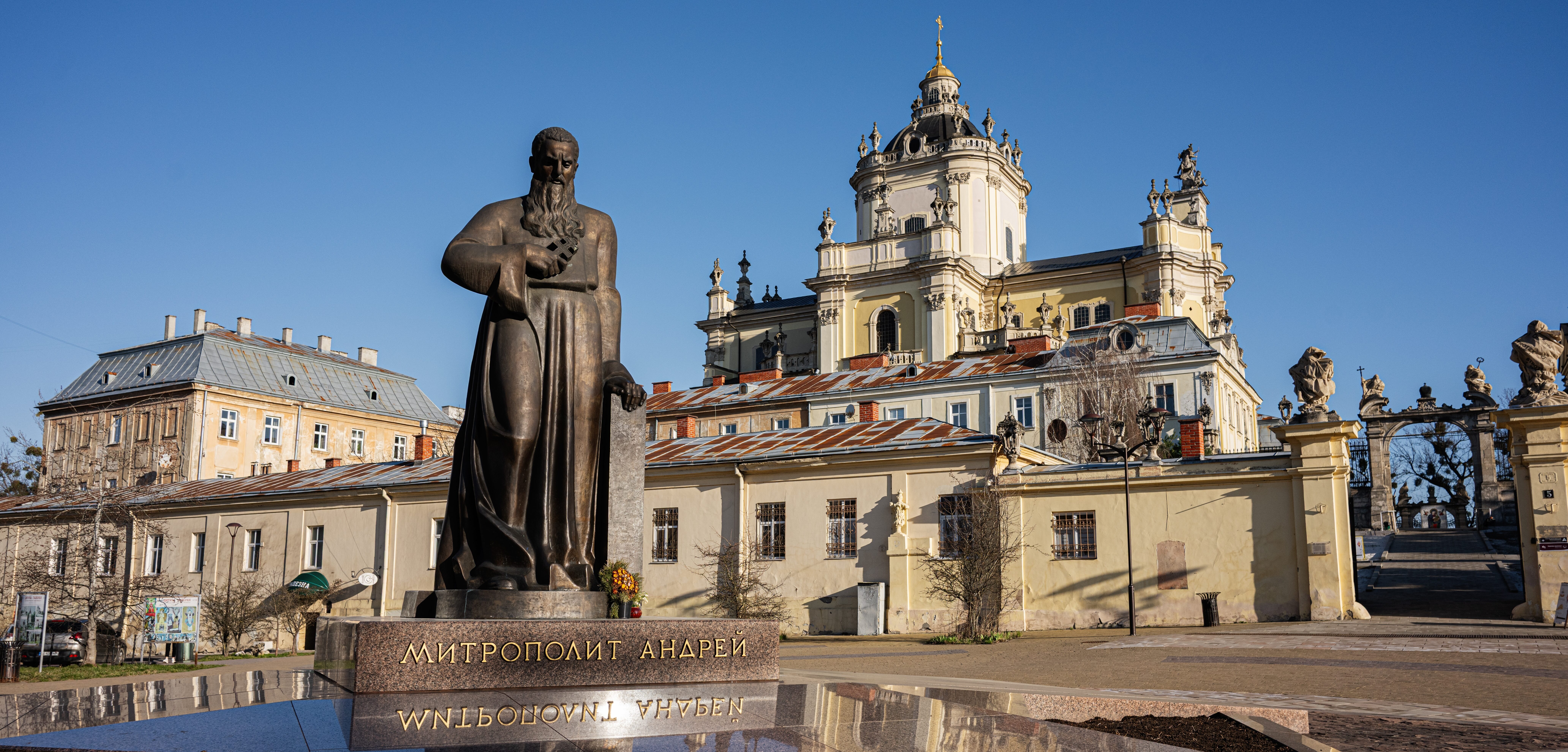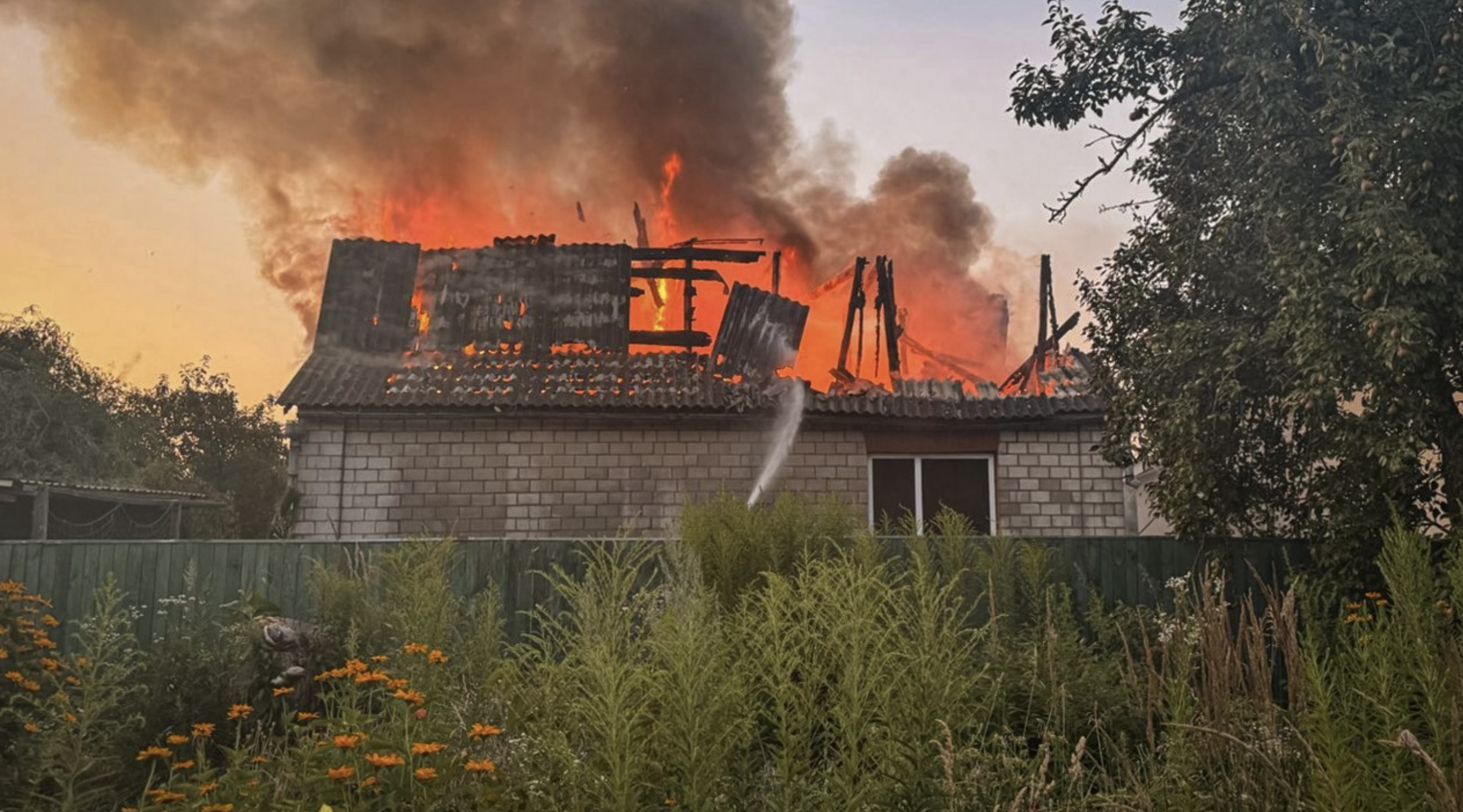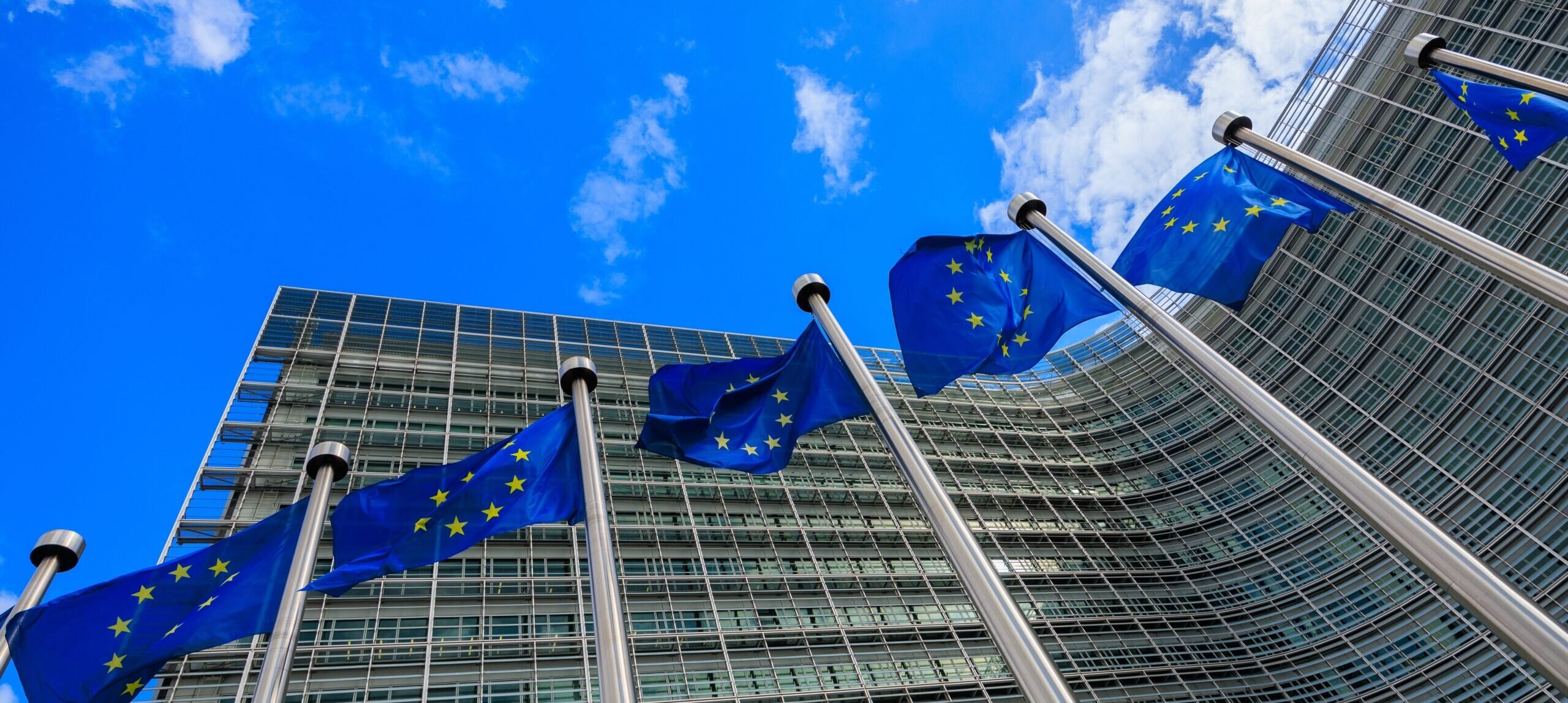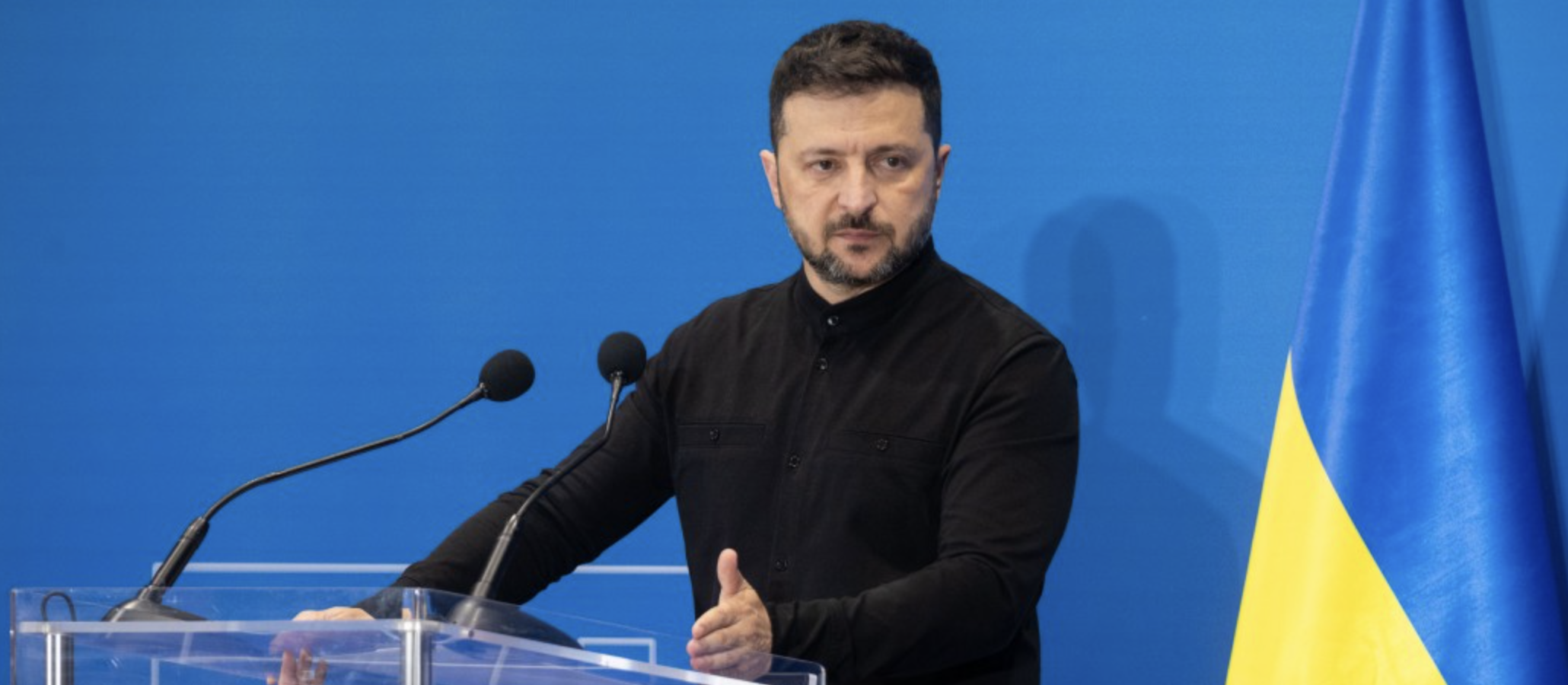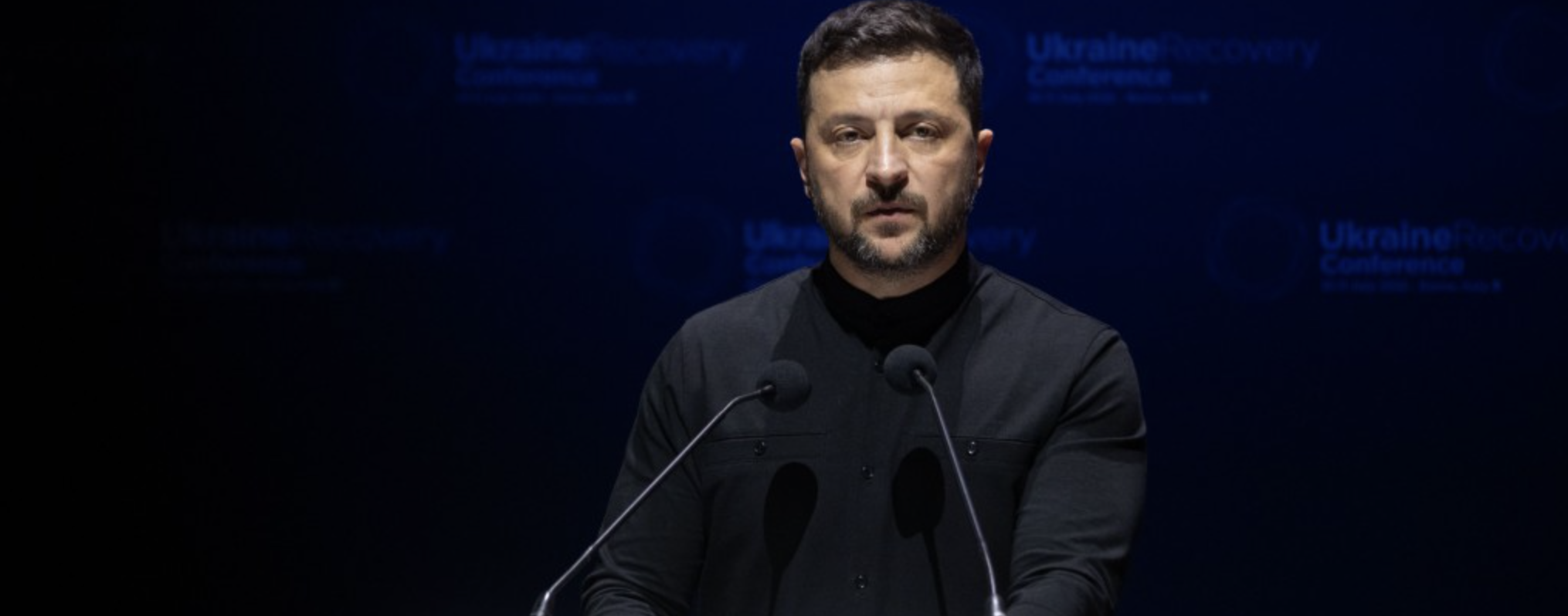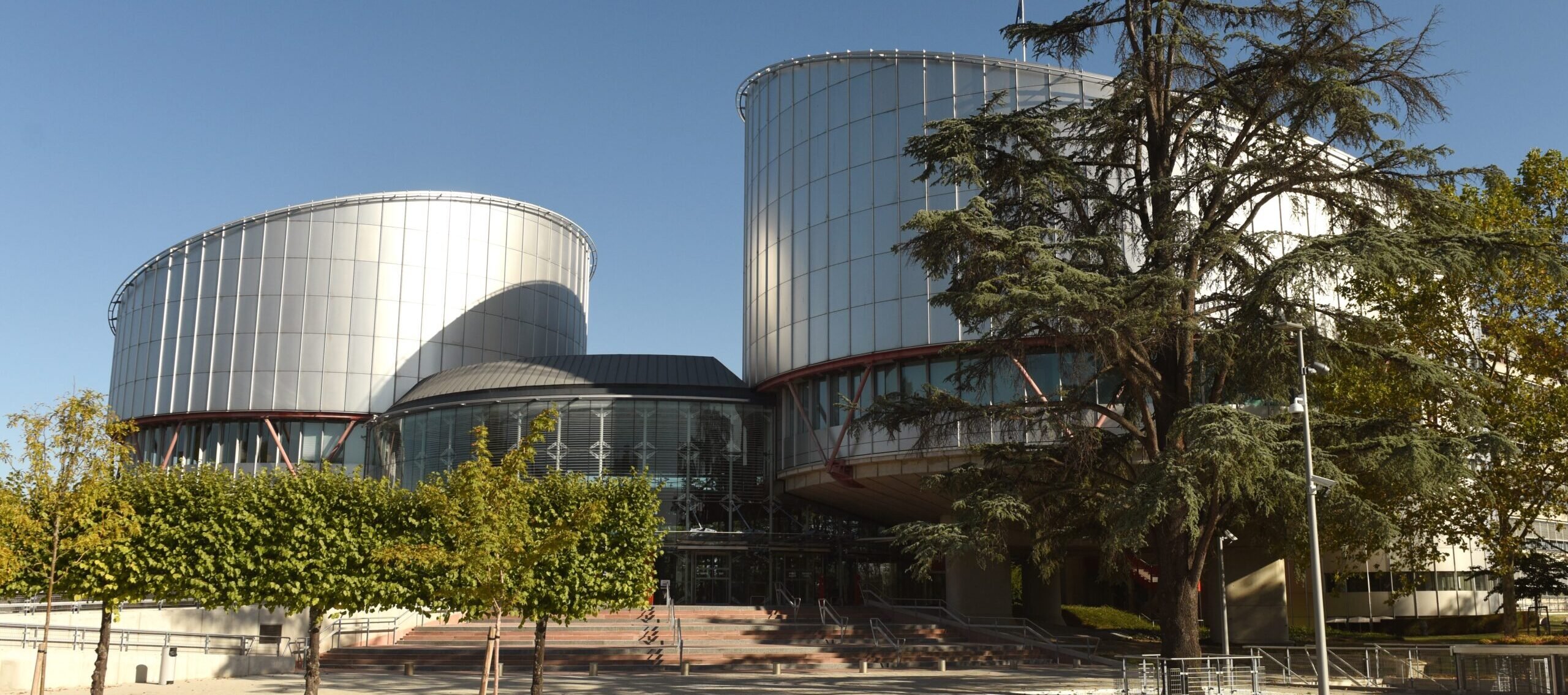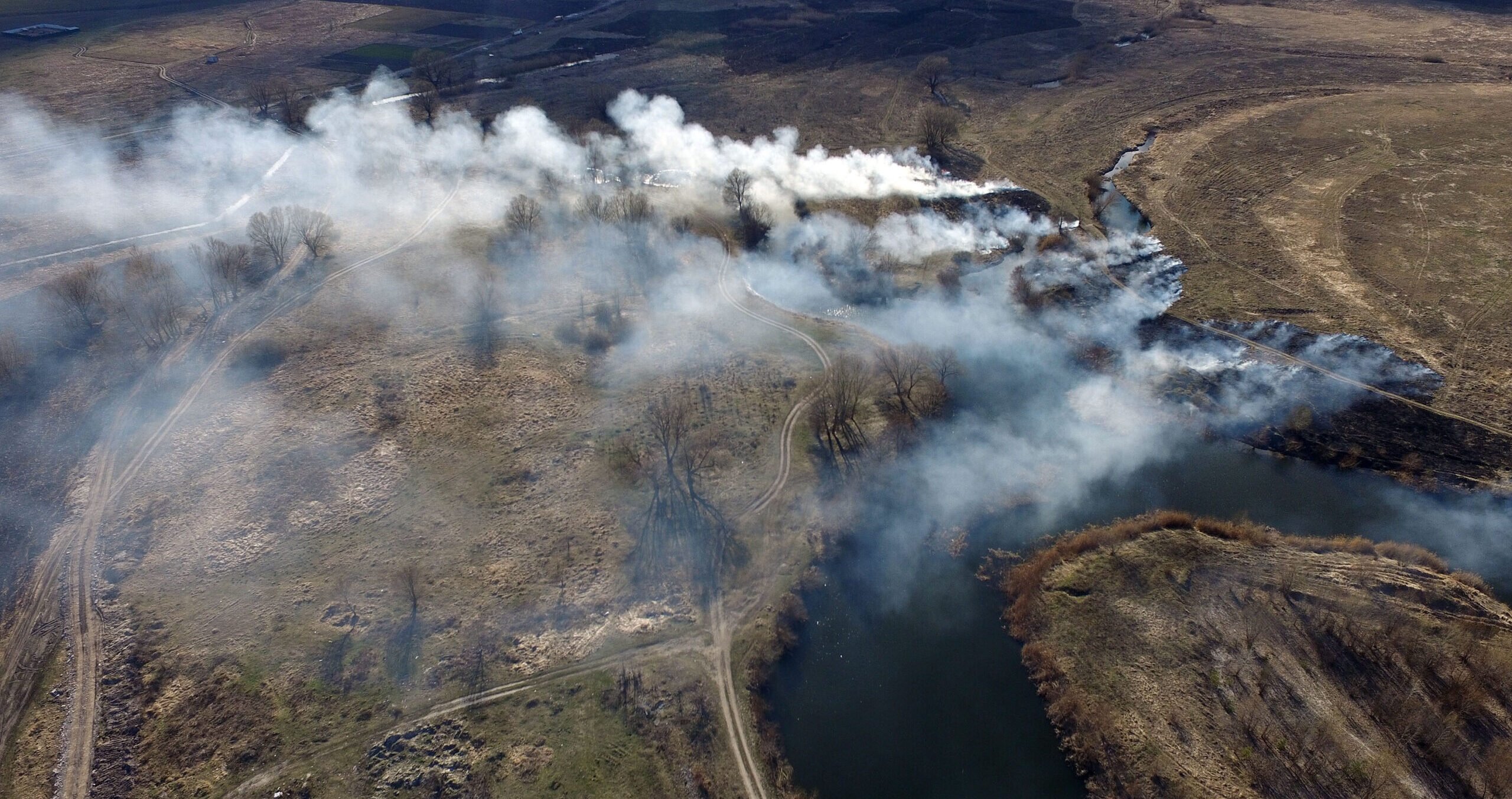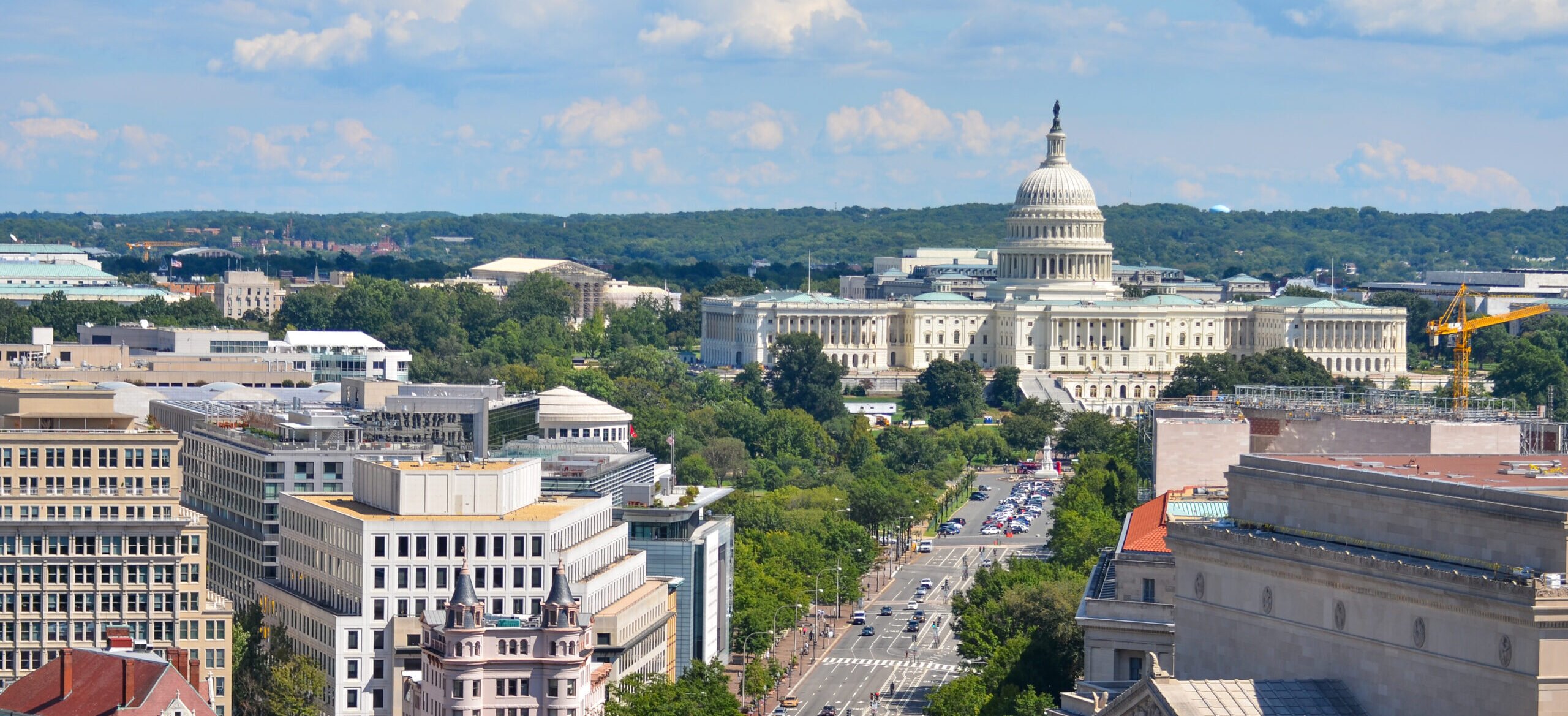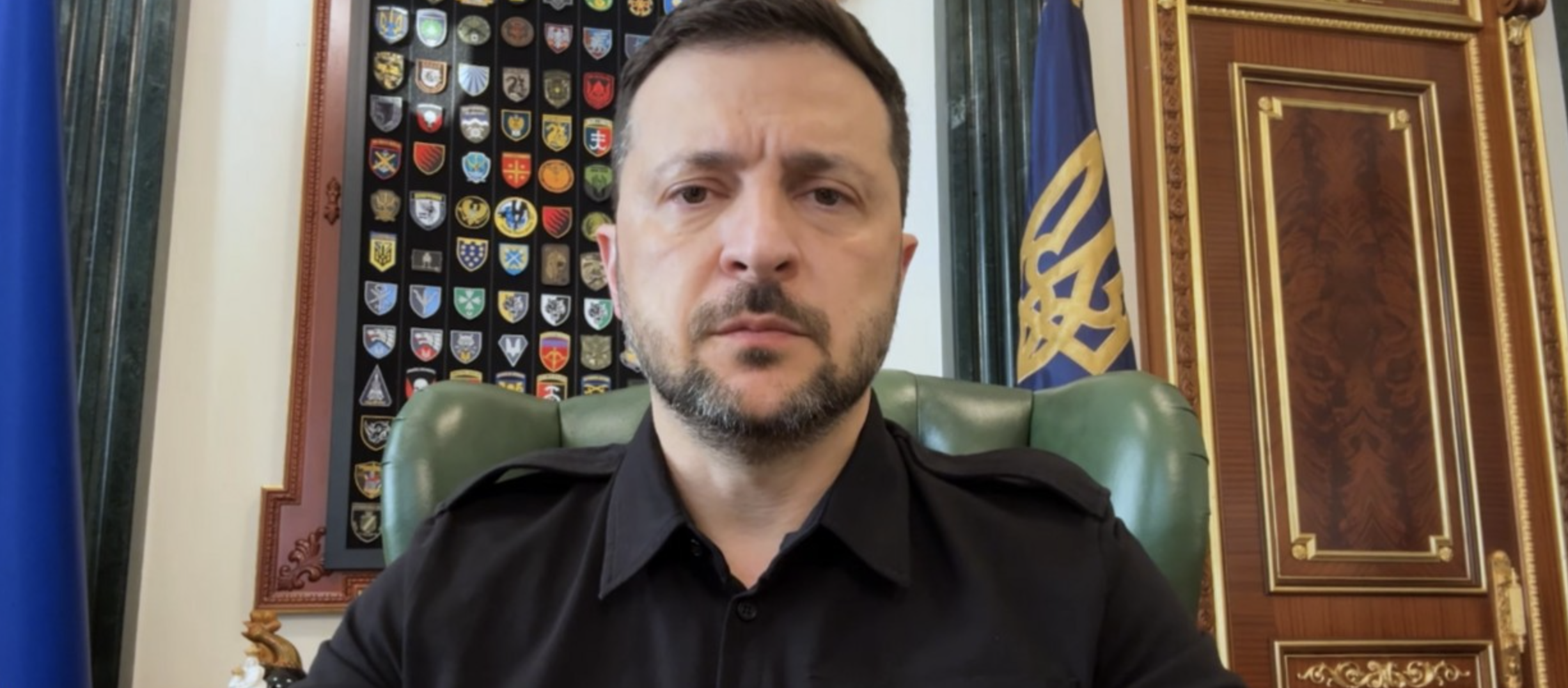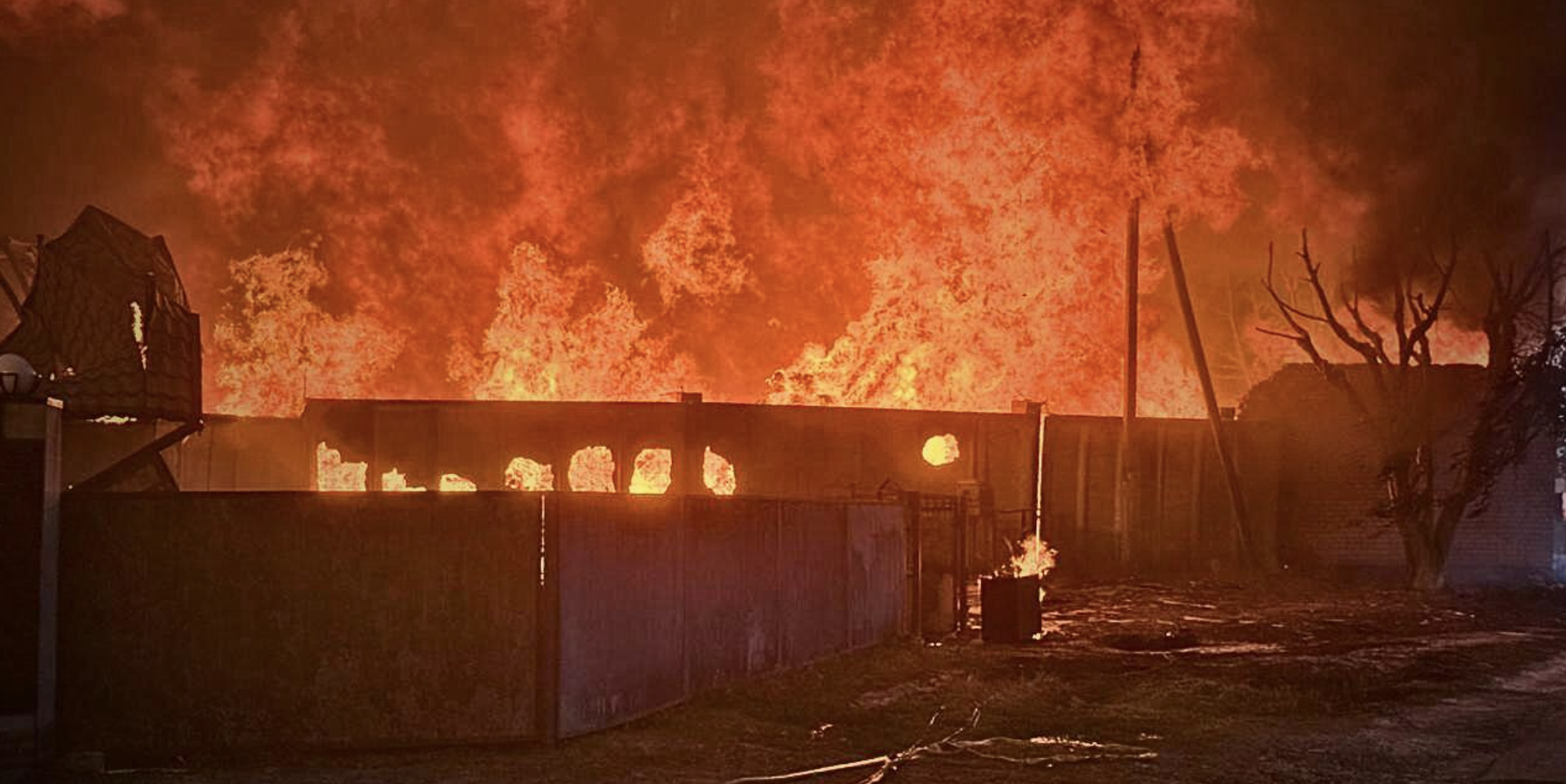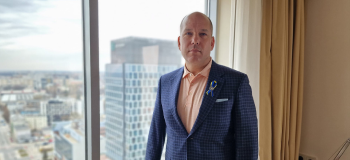
Recently, the president of the Ukrainian World Congress (UWC), Paul M Grod, visited Warsaw where he met with representatives of the Polish government including Poland’s President Andrzej Duda.
In an interview with Ukrinform, Mr Grod discussed the visit, a development strategy for the worldwide Ukrainian community and how the Ukrainian diaspora assists Ukraine during ongoing large-scale Russian aggression.
EUROPE HAS ADVANCED SIGNIFICANTLY IN ITS PERCEPTION OF WHAT PRESENT-DAY RUSSIA IS
– Mr. President, what did you and other UWC representatives discuss with the President of Poland?
– In Poland, there is a feeling that this war is theirs as well. During our meeting, President Duda repeatedly mentioned his talks with Ukraine’s President Zelensky, stressing that the security of Ukraine also means the security of Poland.
We discussed security issues, humanitarian aid to Ukraine and new sanctions against Russia. As we heard from the Polish leader, the Polish government gives the green light to security, political, humanitarian and other components of support for Ukraine.
Europe needs to reach a consensus that Russia is a threat to the entire European continent. Poland is Europe’s leader in counteracting Russian aggression. During the conversation, we also called on the President of Poland to help Ukraine gain EU candidate status.
– Poland is planning to organize an international conference of donors to help Ukrainians, Ukrainian refugees in particular. Was this issue discussed with President Duda?
– No, we did not raise this question. We were focused more on advocacy campaigns that would allow us to enhance support of Ukraine in several countries. We have already been doing this. Recently, I’ve had meetings with high-ranking officials in London and Brussels and with some G7 leaders. We now understand very well where in Europe we still have the most work to secure support for Ukraine. I mean in particular Germany, Hungary, the Netherlands, Belgium, Luxemburg and some others.
– How do you see the advocacy of Ukrainian interests in these countries?
– We begin with the Ukrainian diaspora, our communities in various countries, to make them politically active and take to the streets with their banners and signs. This is the initial stage, the groundwork. Further on, the communities have to bring their arguments into parliamentary lobbies and work with the media, think tanks and civil society.
Europe has advanced significantly in its perception of what present-day Russia is, that it is the aggressor. Thus, an understanding is being gained of how to counteract Russian aggression. However, European countries need further active encouragement to keep on moving in this direction. The war is now in its second month and we are very much afraid that the world might get used to this horror in Ukraine as was the case with Afghanistan or Syria. The role of UWC is to ensure that the situation in Ukraine remains among the top trending topics worldwide.
– How did the world’s Ukrainian community respond to February 24, the beginning of Russia’s war against Ukraine?
– We understood that something was going to happen. We took seriously the threat of a large-scale invasion that the United States and some other countries had warned about and were preparing to provide political and diplomatic support. However, nobody expected what finally happened. We thought that it would be an armed escalation in Ukraine’s east or that Russia would try to force a land connection with Crimea. But nobody believed that the invasion would come simultaneously from different directions. Russian aggression has led to a huge crisis in Ukraine, but on the other hand, it consolidated the entire civilized world.
OUR GOAL IS TO BUY COMPLETE EQUIPMENT FOR AT LEAST 100,000 DEFENDERS OF UKRAINE
– Ukraine currently needs significant military, humanitarian and political support. Kyiv asks for maximum sanctions against Russia to make it stop its armed aggression. They are still insufficient. What does UWC do regarding the extension of the scope of sanctions?
– I agree that these sanctions are insufficient and need to be intensified. The blow to the Russian economy must be maximized so that Putin can no longer finance this terrorist war against Ukraine. Those who do business in Russia and finance the Russian economy in times of war must be exposed. That is why we have launched the “Boycott Russia” campaign, naming the international companies that continue doing business in Russia. So, we ask consumers in different countries not to buy goods or services from companies associated with the aggressor country. International companies have so-called ESG [Environmental, Social and Governance] criteria and every company is very mindful of how its brand is perceived in society. Doing business in Russia should conflict with their ESG criteria. We will continue exposing who continues to work with Russia in the present conditions.
In addition, we need to make maximum use of solidarity with Ukraine at the world leader level and influence them so that these countries minimize their economic ties with Russia.
Energy is a very important issue. It is easier for Canada and the United States in this respect, whereas Europe should do its best to become energy-independent of Russia as soon as possible. Poland is planning to do so before the end of this year. But regretfully, many European countries are not in much of a hurry. European leaders should be persuaded to be more active in implementing sanctions against Moscow. For example, trade with Belarus and Russia through ground routes should be discontinued completely and the seaports around the world should be blocked for Russian vessels.
– Ukraine also needs serious military aid, specifically tanks, planes, artillery systems and anti-aircraft systems. Does UWC consider a possibility to influence governments to provide Kyiv with weaponry?
– Our diaspora in the United States works with congress people and senators to influence the White House to increase the budget for arms support for Ukraine. Washington provides significant aid to Kyiv with arms not least due to the strong Ukrainian lobby in the United States. The Ukrainian lobbies in Canada, the United Kingdom and Australia are also quite influential and this influence should be enhanced in other countries.
The successful defense of Ukraine against the aggressor has provided the whole world with grounds and arguments to actively support Ukrainians, particularly in military terms. And now we have to show who does and who does not. Some time ago, [Foreign] Minister Dmytro Kuleba told me that Ukraine lacks armaments and, after that, we visited London where we lobbied the UK government and appealed in the British media for providing Ukraine with armaments. Thanks to that pressure, we were able to unblock the arms supply. Some time ago, Germany stated it was sending military aid to Ukraine but it was not. Ukrainian diplomats sometimes cannot say this explicitly, but we can. We do so and it’s productive.
– Does UWC as an organization support any Ukrainian military units?
– The Ukrainian diaspora raises funds for a variety of projects. For example, the Canada-Ukraine Foundation by the end of March raised nearly $30 million for the financial support of Ukraine. Our communities throughout the world work very actively and we try to help them, coordinate their activities and ensure that humanitarian aid swiftly reaches addressees.
UWC also engages in the provision of support to Ukraine. Specifically, we have launched a project “Unite with Ukraine” (unitewithukraine.com) that focuses on the procurement of protective equipment, such as bulletproof vests, helmets and thermal imaging cameras. By the end of March, we raised $20 million, of which 25 percent has already been used to buy equipment for Ukraine’s hottest spots. We have set up a UWC logistics center in Poland and actively collaborate with territorial defense units, the Defense Ministry, the Interior Ministry and other official institutions. By the end of March, we procured 10,000 bulletproof vests, 6,000 helmets and over 100,000 tourniquets. But it’s just the beginning. Our goal is to soon raise ten times as much to buy complete gear sets for at least 100,000 defenders of Ukraine. We work along other lines as well. For example, we bought fuel for the Ukrainian army. War requires being adaptable.
THE WESTERN WORLD CANNOT ALLOW RUSSIA TO REOCCUPY UKRAINE
– For over a month, Ukraine has been asking the West to close its skies to prevent the unimpeded bombardment of Ukrainian cities by the aggressor. What does UWC do in this respect?
– Politicians say this is unrealistic. Earlier, however, they said that disconnecting Russia from SWIFT would be unrealistic. We take it as a challenge. If we hear that it’s unrealistic, we voice the issue even louder. I think we can protect the airspace of Ukraine. I don’t know whether it will be possible to close the skies over Ukraine completely but it’s important that our allies provide Ukraine with defense weapons. And the matter here is not only defensive but offensive as well because the Ukrainian territory needs to be liberated from the invaders. The western world cannot allow Russia to reoccupy Ukraine. Kyiv needs armaments to recover its territory. However, NATO and the EU are organizations based on consensus. The United States, Canada and the United Kingdom are ready to do much more. But some European countries are very soft on the issue of military aid to Ukraine. So we need to influence them to change their positions. I speak of Germany, France, the Benelux countries and Hungary. We hope that after the elections in Hungary and France the situation with their support of Ukraine will improve.
– It seems that Germany is the main EU country to block the extension of the sanctions..
– Yes, and we work toward persuading the Germans to support Ukraine. First, the Germans feel historically guilty for the second world war, for the Jews and, somehow, the Russians. We are trying convince them that the Germans killed many Ukrainians, too, during that war.
Second, what’s going on in Ukraine now is genocide. If it is not stopped, it will be the responsibility of the Germans as well. Moreover, Berlin to a significant extent has funded Putin’s war as it buys a lot of energy from Russia. Therefore, the Germans today should help Ukraine. This is an example of how UWC carries on dialogue with different countries.
– What is the global impact of this war on the world’s Ukrainian community?
– Like the world body of Ukrainian people, our diaspora is consolidating. We see today that all are cooperating. Most importantly, we realize that we can do more together than apart. All actions are now important and everybody helps as much as possible. Everyone’s work is important but we need to do it together, upholding each other. Our enemies will try to divide us from inside, we’ve seen this already.
– What did it look like?
– For example, here comes an unknown “activist” wrapped in a Ukrainian flag, who buys two helmets and goes out with the slogan, “I do something and you do nothing.” They do this to cause disruptions in Ukrainian communities. We saw actions like that in 2014-2015. When we identify such things now, we immediately try to get it across to the community that this person is probably a provocateur trying to split our unity and weaken us. We have become more mature now.
Going out to flashmobs is very important but we also need to go further in our actions. There should be an understanding of how to work with politicians in every country because each has its own traditions. The Canadian practices cannot be rolled out automatically onto France or Poland, each having its own specifics. Representatives of our community have to join political parties, become media people and scholars. In this way, one can better influence the thinking of the country’s citizens and the actions of its government. It cannot be done in a day or two, it’s a painstaking job of many years. Now I observe that our communities in many countries are becoming more mature and influential.
Russian aggression is a long game; we have been experiencing it for five hundred years, have survived the Holodomor and other tragedies. It’s not going to happen that Putin dies and everything is over. We need to have a strategy for Russia in place. It is very important that we, as the world’s Ukrainian community, build institutions as a foundation for conscientious Ukrainians many generations ahead. We need to grasp what we have today and what we’ll have in one or two generations. Ukraine’s development is a great challenge faced by the world’s Ukrainian community, and we need to be ready for this. It’s a long struggle for our people.
– How much does the world’s Ukrainian community want the adoption of the dual citizenship law? What will it change for diaspora operations?
– The day after President Zelensky’s inauguration, we discussed how we could create conditions for Ukrainians to return to their homeland. The Ukrainian diaspora in the world is very large, it’s about twenty million people. It’s a big potential resource. Dual citizenship is of key importance. Many people do not want to renounce citizenship in their resident countries but would gladly accept Ukrainian citizenship in addition. Basically, we support the concept of dual, full-fledged citizenship. Of course, there should be security safeguards, such as the revocation of citizenship for anti-Ukrainian activities or banning Ukrainian citizenship for residents of aggressor countries.
Yuri Banakhevych.
Read in Ukrainian here
